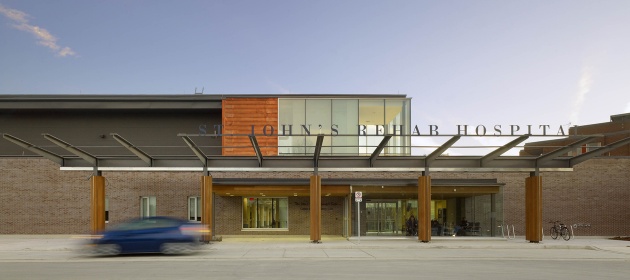Percocet Detox Treatment Facility Chunchula AL
Home
Best Percocet Detox Treatment Facility Chunchula AL Resources & Info
Percocet Detox Treatment Facility Chunchula AL
Call 1-888-498-1045 to access a trusted drug addiction helpline. Calling a Drug Hotline Calling a hotline requires honesty. Because God’s love is so great, he is willing to forgive your past sins. Our counselors are here to help guide you to the right treatment center for your addiction.
The building of the person’s relationship with Jesus Christ, self-worth, and responsibility, prepare them for the rest of the program. When making a commitment for treatment at one of these centers, try to finish the program this will go a long way in your recovery from drugs or alcohol.
More Details About Amphetamines Addiction Treatment Clinic

More Resources For Amphetamines Addiction Treatment Clinic Chunchula AL
Temptation-Related Benefits at Inpatient Drug Rehab Facilities Perhaps the most difficult aspect of recovery is temptation. Cravings, withdrawal, and mental illness all contribute to the idea of powerlessness in drug addiction. “Smoking dope and smoking coke, you are rendered defenseless. There are also programs that take insurance to cover most or all of the treatment for addiction.
Even more Information Around Vicodin Addiction Detox Facility
Some of these individuals, even though they want to move past their addictions, give up on the idea of rehab altogether simply based on the inability to pay. According to the National Council on Alcoholism and Drug Dependence, the following are signs that an individual may have a drug abuse problem and should seek help: Using drugs in higher doses, using more often, or using for longer than intended; not being able to control use No longer participating in activities that used to be enjoyable Struggling with relationships due to drug use Being unable to keep up with responsibilities at work, school, or home Hiding substance use from others Running out of prescription drugs faster than expected or stealing drugs from others In addition, if the person feels unable to function without using the substance, or experiences withdrawal symptoms when drug use is stopped, drug abuse or addiction may be present. It could even be referred to as a vicious circle. If the individual is addicted to alcohol or drugs, there is a high chance they will develop a physical dependency also.
Even more Details About Vicodin Addiction Detox Facility Chunchula AL
It can be done on an individual basis, but it's more common to find it in a group setting and can include crisis counseling, weekly or daily counseling, and drop-in counseling supports. It is being transshipped in to the state by the various criminal groups of Mexico, California and other southwestern states. What can I do for my adult son who is shooting meth? My 24yr old son, Jake was in the army for 3 yrs, saw combat in Afghanistan. In spite of its prosperity, some of the residents have become dependent on alcohol or drugs. If your faith is central to who you are, why not let it be central to your recovery, too? Often times, this type of self-medicating turnsin to addiction. Being alive, rather than merely breathing and maintaining existence means that your days are given meaning and value, that there is some level of quality that you consistently maintain. Considering that nicotine and other psychoactive substances such as cocaine activate similar psychopharmacological pathways,[37] an emotion regulation approach may be applicable to a wide array of substance abuse. In a survey of treatment providers from three separate institutions (the National Association of Alcoholism and Drug Abuse Counselors, Rational Recovery Systems and the Society of Psychologists in Addictive Behaviors)[where?] measuring the treatment provider's responses on the Spiritual Belief Scale (a scale measuring belief in the four spiritual characteristics AA identified by Ernest Kurtz); the scores were found to explain 41% of the variance in the treatment provider's responses on the Addiction Belief Scale (a scale measuring adherence to the disease model or the free-will model addiction).[4] Scientific research since 1970 shows that effective treatment addresses the multiple needs of the patient rather than treating addiction alone.[citation needed] In addition, medically assisted drug detoxification or alcohol detoxification alone is ineffective as a treatment for addiction.[3] The National Institute on Drug Abuse (NIDA) recommends detoxification followed by both medication (where applicable) and behavioral therapy, followed by relapse prevention.
Click Here for More Information
Previous Next
You may also like:
Steroids Addiction Detox Clinics Harrod OH
Percocet Abuse Clinic Clifton Heights PA
Christian Drug Rehab Uk Minturn SC
Methamphetamine Addiction Treatment Program Quincy OH
Campral Abuse Facilities Holder FL
Revia Detox Facility Victorville CA
Marijuana Detox Treatment Center Nacogdoches TX
Speed Addiction Churchs Ferry ND
Subutex Detox Treatment Facility Hazen ND
Xodol Addiction Programs Talmage UT
Avinza Rehab Treatment Clinics Tangier VA
Dilaudid Addiction Rehab Center Kill Buck NY
Biphetamine Detox Facilities Mecosta MI
Robitussin Addiction Rehab Center Huntsville AL
Dexedrine Rehab Hospital Near Me Padroni CO
Christian Detox Dalton NY
Cocaine Rehab Treatment Centers Hazel Crest IL
Tramal Abuse Treatment Clinic Mount Washington NH
Clonazepam Detox Treatment Facilities Grantsburg WI
Church Based Recovery Programs Randolph MS